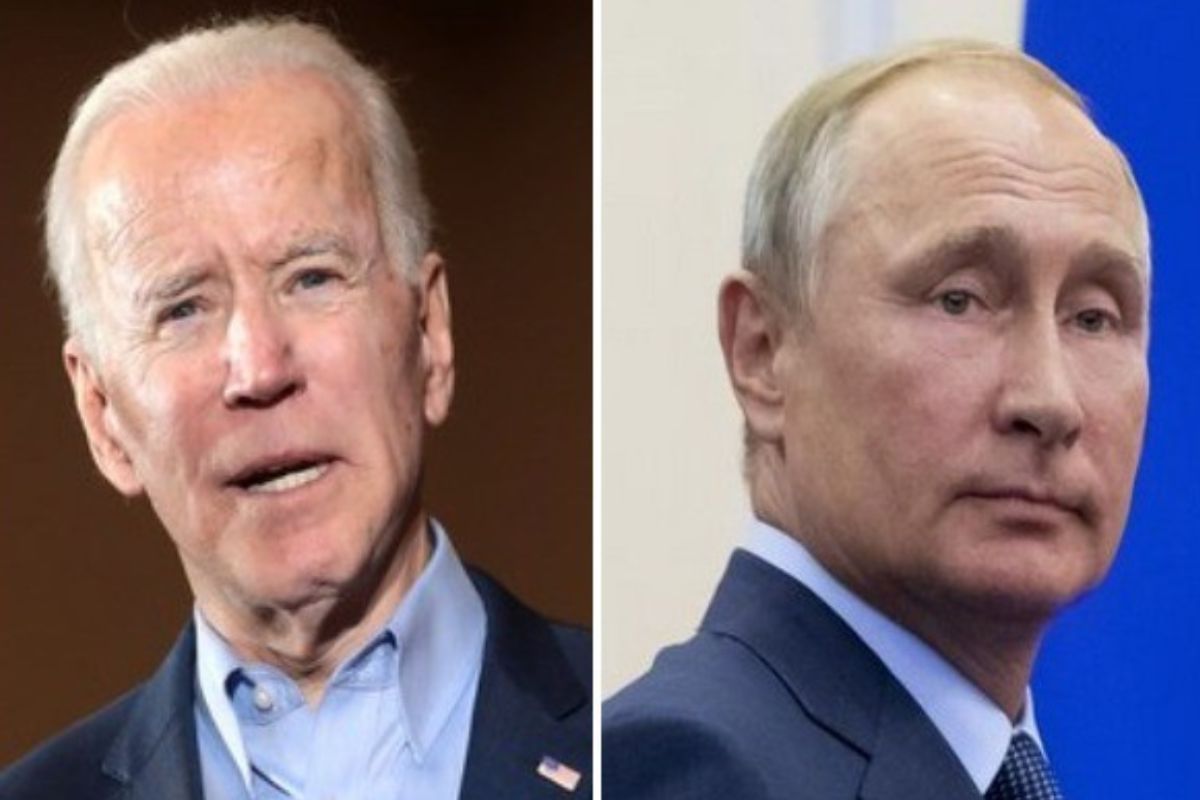India and NATO~I
Of late, the issue is being increasingly talked about in some strategic circles in India.
In the ever-evolving geopolitical landscape where words are often as potent as actions, Russian President Vladimir Putin’s categorical dismissal of US President Joe Biden’s claim that Russia would attack a NATO country if successful in Ukraine raises pertinent questions about the underlying dynamics at play.

US President Joe Biden and Russian President Vladimir Putin. (Photo: ANI)
In the ever-evolving geopolitical landscape where words are often as potent as actions, Russian President Vladimir Putin’s categorical dismissal of US President Joe Biden’s claim that Russia would attack a NATO country if successful in Ukraine raises pertinent questions about the underlying dynamics at play. At the heart of this verbal jousting is Mr Biden’s warning that a victorious Russia in Ukraine could spell trouble for a NATO member. Yet, Mr Putin swiftly labelled the assertion as “complete nonsense,” going on to assert that Russia harbours no conceivable reason or interest in engaging in hostilities with NATO nations.
It’s a diplomatic chess move, and the implications are far-reaching. Mr Putin’s rhetoric, however, doesn’t merely hinge on a simple denial. It is a strategic rebuke, aimed not only at discrediting Mr Biden’s warning but also at casting doubt on the broader narrative surrounding Russia’s intentions.
By categorically rejecting the notion of a military confrontation with NATO, Mr Putin seeks to dismantle the foundation upon which Mr Biden’s strategy ~ to drum up domestic support for Ukraine ~ is built. The key question that emerges is whether Mr Putin’s assertion holds water. Can we take his word at face value? The answer likely lies in the intricate web of international relations, where interests, historical context, and strategic calculations converge. Thus, Mr Putin’s argument that Russia lacks any motivation, geopolitical, economic, political, or military, to engage in conflict with NATO countries merits scrutiny. While overt military confrontation may not align with Russia’s immediate interests, the broader geopolitical landscape suggests that tensions exist on various fronts.
Advertisement
Energy disputes, regional influence, and historical grievances are potent ingredients that simmer beneath the surface, ready to influence the course of international affairs. Mr Biden’s warning, although lacking evidence, must be seen in the context of a broader strategy aimed at deterring potential Russian aggression. Whether the warning was an attempt to justify past policies or a genuine expression of concern, it underscores the fragility of the geopolitical balance and the need for vigilant diplomacy. In parsing through these intricacies, it becomes evident that the truth lies somewhere in the grey area between Mr Putin’s categorical denial and Mr Biden’s cautionary words.
Both leaders are navigating a complex international chessboard, each making calculated moves to safeguard their national interests. As observers, it is crucial to resist the temptation to view this exchange through a simplistic lens of right or wrong. The nuances of international relations often elude black-and-white categorisations. Instead, we must scrutinise the motives, understand the historical context, and recognise the intricate power play that defines the interactions between nations.
The PutinBiden exchange serves as a stark reminder of the delicate balance required in navigating the complex terrain of international diplomacy. The veracity of warnings and denials may remain elusive, but the need for nuanced analysis and informed dialogue has never been more pressing.
Advertisement